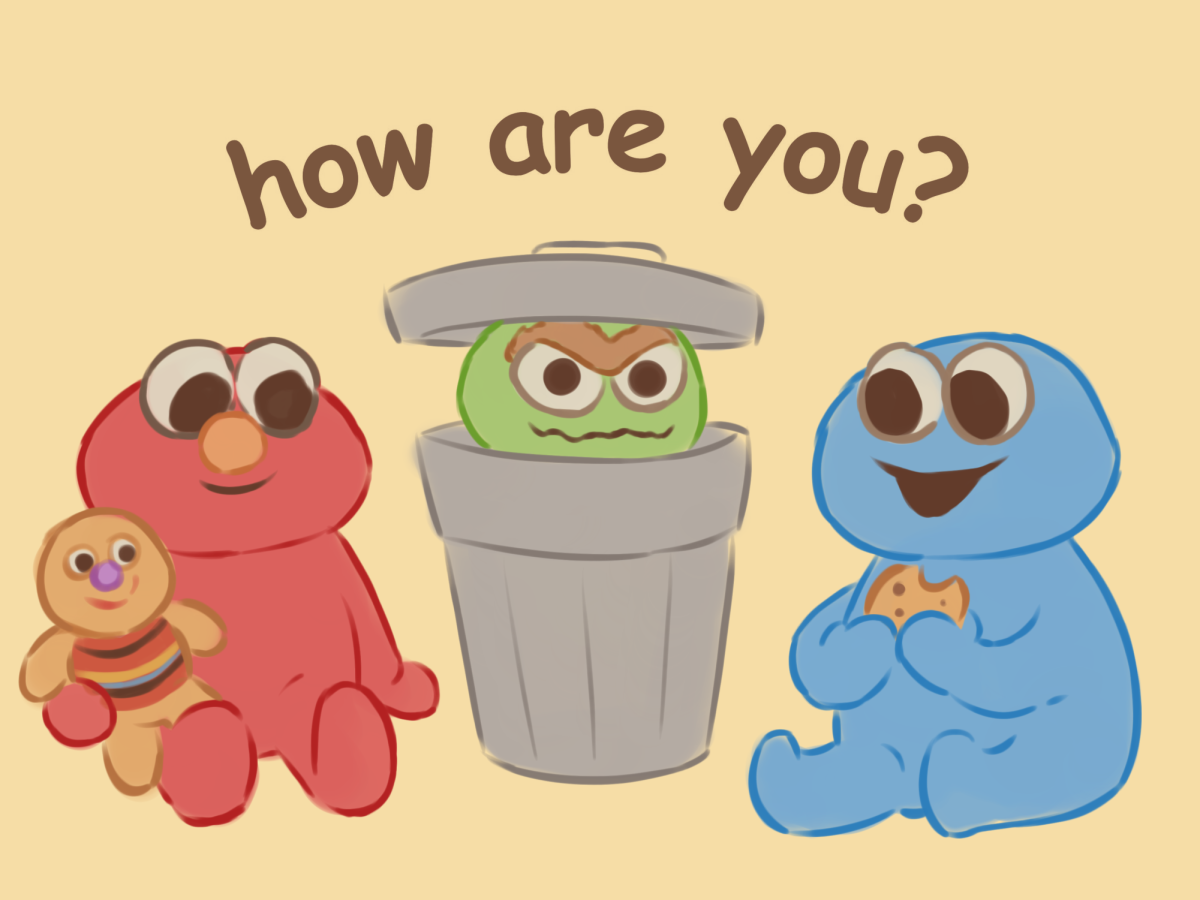It’s a question that you probably get asked every day by a professor, your mother or one of your good friends: “How are you doing?” However, think about the last time that you actually told the truth instead of saying the obligatory “good” or “fine” or “meh.” If you’re like us, it’s probably been a long time since you’ve felt permitted to respond freely, perhaps since childhood.
Enter Elmo, the red puppet that populated our television screens as a member of Sesame Street and our phone screens now in the form of memes, tweets and Instagram posts. A few weeks ago, Elmo took to X and asked his followers: “Elmo is just checking in! How is everybody doing?” His followers did not hold back whatsoever, with Elmo’s followers unleashing a massive wave of responses, and let’s say that they were… interesting. Almost none of the responses were the obligatory “good” or “fine” or “meh.” In fact, it seems that everyone was the opposite of “good.”
One user posted, “Elmo, I’m gonna be real with you, I don’t think I can keep living like this. I feel like Oscar the Grouch in a world of Elmos.” Another posted, “Elmo, I just got laid off.”
Why this outpouring of the truth? Why not just the obligatory “good,” “fine” or “meh”? Part of this honesty likely comes from the security of hiding behind a screen. People become more honest and transparent not when they are talking to someone else in person, but when they have the security of a phone screen that they can hide behind. What can we make of this? Should we be alarmed that we have lost the ability to be more honest with our feelings to others? Or should we be grateful that we now have this unlimited platform, the Internet, that can be an outlet for ourselves while giving us a mask?
Take this response to the Oscar the Grouch post from above: “Oscar the Grouch was always secretly my favorite. I think there are a surprising number of Oscars out there, even though many are wearing Elmo masks.”
The Elmo thing seems to be a double edged sword. While our small nostalgic friend has gotten us to be honest with ourselves and our feelings, it has the potential to perpetuate the notion that the Internet acts as the safest place to share these feelings. Does our childhood value of honesty come at the cost of being able to say these things from person to person?
As we think about why this phenomenon occurred, we also wonder if it could be that as we grow older, we are conditioned to stifle our voices and keep our feelings to ourselves. We become more indoctrinated into a society that tells us to fit specific roles, and that, in turn, causes us to lose our childhood innocence and instincts. For instance, were you ever told to wear specific clothing as a child? That as a boy you couldn’t play with dolls or that as a girl you couldn’t play football? Small things like that add up over our lives, resulting all too often in adults hiding their feelings and opinions from other people. Perhaps because Elmo exists as such a prominent symbol of people’s childhood and nostalgia, his tweet caused people to revert to their childhood instincts of being honest with themselves and others.
So thank you, Elmo, for asking how we are doing. While your responses may not have been what you expected, you’ve reminded us that we are not alone in this big, scary world. In response to all of the tweets, the official Sesame Street account posted “Thank you @Elmo for checking in with a reminder for us to pause and take a mindful moment to focus on how we’re feeling.” They proceeded to provide links for various mental health resources. Elmo, Cookie Monster and the entire Sesame Street ensemble then banded together with #EmotionalWellBeing to further spread awareness for mental health issues.
To end off, we would like to ask you all “How are you doing?” From all of us here at the Arts and Culture section, we sincerely hope that you are doing well.






















